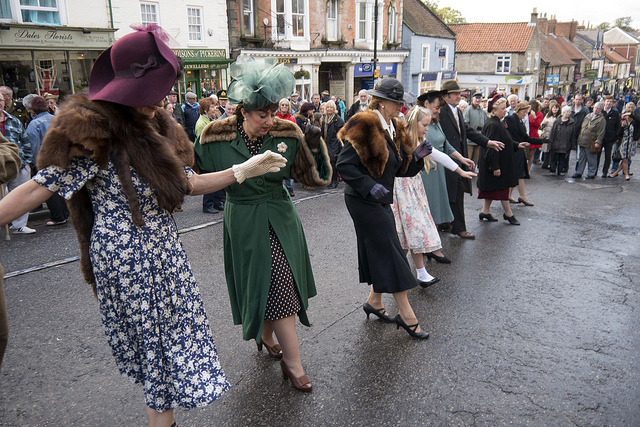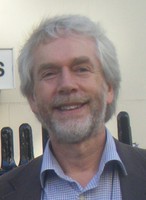David Cameron faces similar internal divisions as did Harold Wilson over Europe
David Cameron’s indecisiveness on collective cabinet responsibility and the EU Referendum campaign has been widely commented upon. Alun Wyburn-Powell argues that the situation mirrors challenges that the Labour Wilson government faced in 1975 and that it also serves to underline that Conservative Party divisions are a central reason for why the referendum is happening in the first place.

Credit: Bryan Ledgard, CC BY SA 2.0
Cameron accused of Hokey Cokey on Europe
Prime minister David Cameron has to decide whether to suspend collective cabinet responsibility over the EU referendum in a bid to keep his fractious Conservative Party together. Normally ministers must abide by cabinet decisions, even if they do not agree with them, or they have to resign. David Cameron is considering the rarely used, and not always successful, device of allowing ministers to disagree in public and even to campaign on different sides of the debate.
The device was used in 1932 when the Liberal members of the National Government reached an ‘agreement to differ’ over the issue of tariffs, which the Liberals under Herbert Samuel could not support. The agreement only had temporary value, as the Liberals resigned from the government later in the year when tariffs were introduced.
The 2010 Conservative/Liberal Democrat coalition agreement included a provision for the Liberal Democrats to abstain on proposals for university tuition fees. The agreement to differ had little practical value. The tuition fee increase was implemented and in the 2015 election of the eight Liberal Democrat MPs who survived, four had voted for the tuition fees rise and four against.
At the recent G7 summit reporters were convinced that David Cameron had definitely said that ministers would be bound by collective responsibility over the EU referendum to be held in 2016 or 2017. He then clarified his position just a few hours later, saying that he had been misinterpreted and that collective ministerial responsibility only applied to the current stage of the renegotiations and that no decision had been made on collective responsibility during the referendum campaign itself.
Do the Hokey-Cokey
In the House of Commons, Labour’s Shadow Foreign Secretary Hilary Benn mocked the Conservative position, saying ‘members of the Cabinet who are for out read yesterday that they would be out unless they campaigned for in. Now it seems they might be in even though after all they are probably for out. In, out, in, out. It’s the EU Tory Hokey Cokey’.
Hilary Benn’s analogy is apt, but applies more broadly than just to the Conservative cabinet. The Labour Party, and indeed the whole country, has turned about on Europe.
In 1975, under similar circumstances to today, Labour prime minister Harold Wilson released ministers from collective responsibility over whether to support his renegotiated terms for the UK’s continued membership of the EEC, the forerunner of the EU. The renegotiation had achieved few changes, but by a margin of 2 to 1, voters decided to remain with Europe.
Left Foot Out
Released from collective responsibility, several cabinet ministers campaigned for a no vote in 1975, including Hilary Benn’s father, Tony Benn. He was joined by Peter Shore and by others on the left of the Labour Party including Michael Foot who wanted out. Headline writers had almost as much fun with Foot’s position on the EEC as they did when he was appointed to a nuclear disarmament committee, which prompted the headline ‘Foot heads arms body’.
And you turn around
In 1975 the Conservative Party was more pro-European than the Labour Party. Now it’s the other way round. Then the east of England was more pro-European than the west and England was more pro-European than Scotland. Today these positions are all reversed.
Another significant difference between 1975 and today is that now there are politicians whose main purpose for being in politics is to get the UK to leave the EU. In 1975 those campaigning for a no vote were politicians from different parts of the political spectrum, but all of them had other interests. Tony Benn commented after being on the losing No side of the 1975 debate: ‘When the British people speak everyone, including members of Parliament, should tremble before their decision and that’s certainly the spirit with which I accept the result of the referendum’.
That’s what it’s all about
David Cameron must be hoping that the EU referendum will settle matters for another 40 years – at least within the Conservative Party, for that’s what the referendum is really about.
—
This post represents the views of the author and not those of Democratic Audit or the LSE. Please read our comments policy before posting.
—
 Dr Alun Wyburn-Powell is the author of a biography of William Wedgwood Benn, first Viscount Stansgate. He can be found on Twitter @liberalhistory and writes a blog.
Dr Alun Wyburn-Powell is the author of a biography of William Wedgwood Benn, first Viscount Stansgate. He can be found on Twitter @liberalhistory and writes a blog.





 Democratic Audit's core funding is provided by the Joseph Rowntree Charitable Trust. Additional funding is provided by the London School of Economics.
Democratic Audit's core funding is provided by the Joseph Rowntree Charitable Trust. Additional funding is provided by the London School of Economics.
David Cameron’s Hokey Cokey over the EU referendum https://t.co/CSBSx77zpq
David Cameron faces similar internal divisions as did Harold Wilson over Europe https://t.co/U1haQZopWH
Cameron’s Hokey Cokey on the EU referendum – Conservative Party unity – that’s what it’s all about. https://t.co/CSBSx77zpq
RT @liberalhistory @democraticaudit Cameron faces similar internal divisions as Harold Wilson over Europe: https://t.co/4d0J7WPqxB
Cameron faces similar internal divisions as Harold Wilson over Europe: https://t.co/5l8J6rzIvv
What is Cameron’s EU Hokey Cokey all about? https://t.co/CSBSx77zpq
That’s what it’s all about – Cameron’s Hokey Cokey over Europe https://t.co/CSBSx77zpq
Cameron faces similar internal divisions as Harold Wilson over Europe in 1975 https://t.co/CSBSx77zpq
Cameron faces similar internal divisions as Harold Wilson did over Europe https://t.co/CSBSx77zpq
Cameron faces similar internal divisions as Harold Wilson over Europe https://t.co/CSBSx77zpq
Cameron faces similar internal divisions as Harold Wilson over Europe https://t.co/fZT9jRXwij #Option2Spoil
That’s what it’s all about. The real reason for David Cameron’s Hokey Cokey over Europe. https://t.co/CSBSx77zpq
Cameron faces similar internal divisions as Harold Wilson over Europe https://t.co/5ItxcPlvnz https://t.co/SO3AEwKUU2